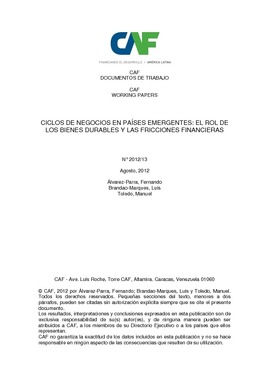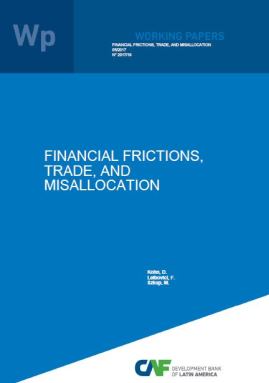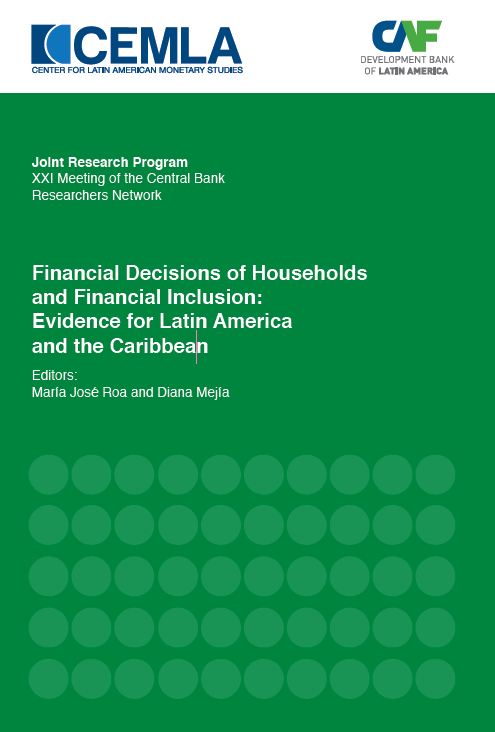Mostrar el registro sencillo del ítem
Business Cycles in Emerging Markets: the Role of Durable Goods and Financial Frictions
| dc.contributor.author | Álvarez, Fernando | es |
| dc.contributor.author | Brandao-Marques, Luis | es |
| dc.contributor.author | Toledo, Manuel | es |
| dc.date.accessioned | 2014-10-15T20:04:16Z | |
| dc.date.available | 2014-10-15T20:04:16Z | |
| dc.date.issued | 2012 | es |
| dc.identifier.citation | Álvarez, F., Brandao-Marques, L., & Toledo, M. (2012). Business Cycles in Emerging Markets: the Role of Durable Goods and Financial Frictions. CAF Working paper, 2012/13, Caracas: CAF. Retrieved from https://scioteca.caf.com/handle/123456789/243 | en_GB |
| dc.identifier.uri | https://scioteca.caf.com/handle/123456789/243 | |
| dc.description.tableofcontents | There is a growing literature studying business cycles in emerging economies. This paper contributes to this literature by examining how durable goods and financial frictions shape cyclical fluctuations in a small open economy subject to transitory and permanent shocks. We find that permanent shocks play a less important role driving the cycle in emerging economies than previously documented. We also find that financial frictions are crucial to explain some key business cycle properties of these economies. In our quantitative model, a countercyclical borrowing premium interacts with the purchase of durables to deliver highly volatile consumption and strongly countercyclical net exports. | en_US |
| dc.language.iso | eng | es |
| dc.publisher | CAF | es |
| dc.relation.ispartofseries | CAF Working paper, 2012/13 | es |
| dc.rights | CC-BY-NC | es_ES |
| dc.rights.uri | http://creativecommons.org/licenses/by-nc/4.0/ | es_ES |
| dc.subject | Sector financiero | es |
| dc.subject | Economía | es |
| dc.subject | Investigación socioeconómica | es |
| dc.title | Business Cycles in Emerging Markets: the Role of Durable Goods and Financial Frictions | es |
| dc.type | workingPaper | es |
| dc.publisher.city | Caracas | es |
Ficheros en el ítem
Este ítem aparece en la(s) siguiente(s) colección(ones)
-
6.1 Documentos de trabajo en investigación socioeconómica
En esta colección se encuentran los documentos de trabajo sobre temas económicos y sociales prioritarios para la región.





